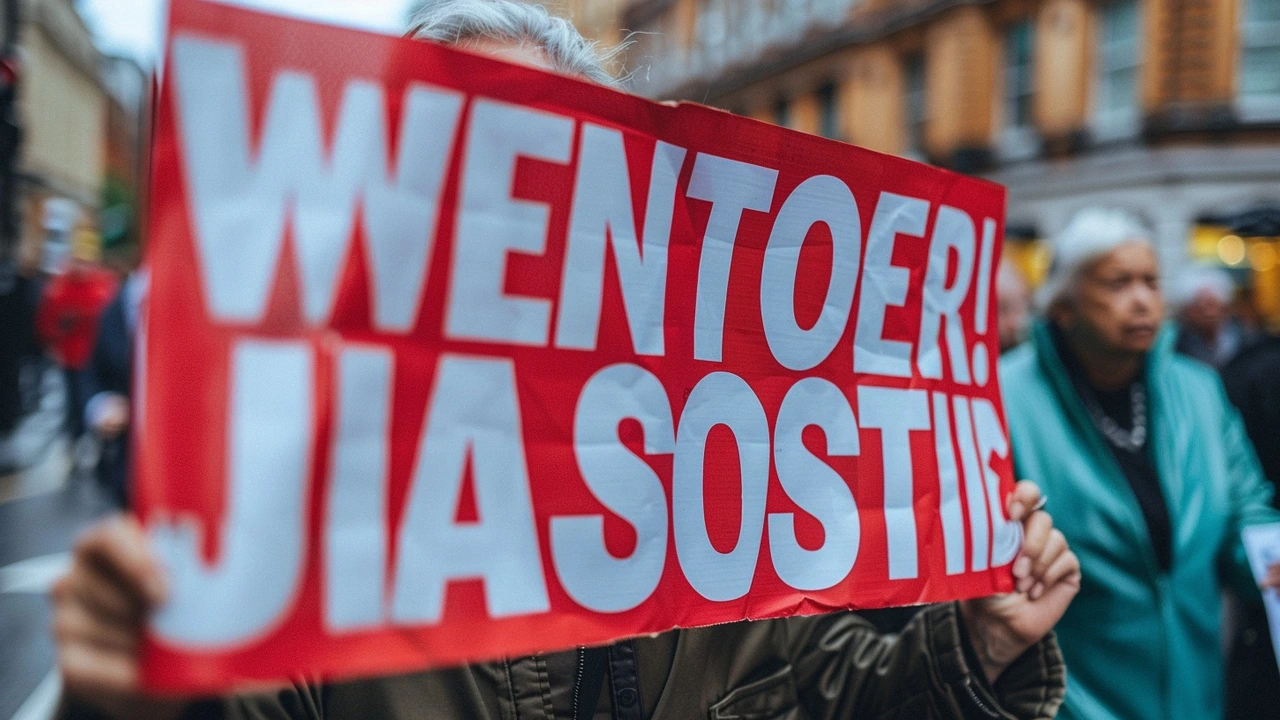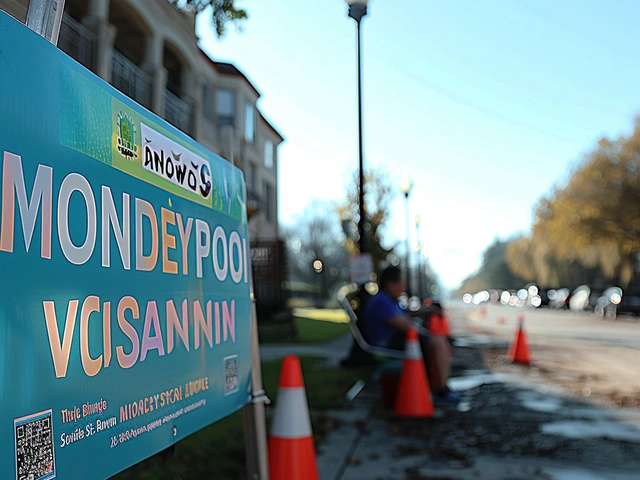UK Government Proposes Compensation for Infected Blood Scandal Victims
In an unprecedented initiative, the UK government has proposed a compensation scheme that aims to address the suffering of thousands of individuals who were infected with HIV and hepatitis C through contaminated blood products and transfusions within the National Health Service (NHS) between 1970 and 1991. Under this scheme, potential payouts could exceed £2 million per person, depending on the individual’s circumstances. This significant plan follows the release of a comprehensive public inquiry report, which exposed a disturbing cover-up and unacceptable risks inflicted upon the victims.
The saga began decades ago and has since affected more than 30,000 individuals, with about 3,000 having tragically passed away from the infections. The contaminated blood scandal, one of the gravest health disasters in the UK, has long been a source of anguish for the victims and their families, who have consistently demanded justice and adequate compensation for their suffering. For many, the announcement of this new compensation scheme is a step closer to achieving that goal.
The compensation amounts under this proposed scheme will be calculated based on five critical criteria: injury and harm caused, social impact, impact on autonomy, care costs, and financial loss. This comprehensive approach aims to ensure that the compensation is reflective of the extensive range of detriments suffered by the victims. The scheme also extends beyond the individuals directly infected, offering compensation to the family members of the victims who have endured accompanying hardships.
Public Inquiry Findings and Government Response
The establishment of this compensation scheme follows the publication of a public inquiry report, which offered a harrowing look into the events and mismanagement that characterised the contaminated blood crisis. This inquiry, led by Sir Robert Francis, uncovered not just negligence but a systematic cover-up that sought to shield the responsible entities from accountability. The report’s findings have placed enormous pressure on the government to act swiftly and decisively to address the widespread impact of this crisis.
Prime Ministerial statements and ministerial responses have frequently acknowledged the profound failings that allowed this tragedy to unfold. In announcing the proposed compensation scheme, government representatives expressed a firm commitment to delivering justice to the victims and ameliorating their long-endured suffering. Statements from the Prime Minister and health ministers emphasized that this compensation is an essential part of the broader effort to right past wrongs and provide closure to those affected.
Criteria for Compensation
The Infected Blood Compensation Authority (IBCA), chaired by Sir Robert Francis, will be responsible for administering the compensation scheme. This authority will offer individuals the choice of receiving a lump sum or a series of payments, granting flexibility to accommodate the different needs and preferences of victims. The five specific criteria for compensation aim to address the multifaceted impact of the infections:
- Injury and Harm Caused: The primary basis for compensation will be the physical and psychological harm suffered due to the infection. This criterion is crucial in capturing the direct impact on health and quality of life.
- Social Impact: This factor considers the broader societal ramifications, including the stigma and isolation experienced by the victims and their families as a result of the infections.
- Impact on Autonomy: The loss of independence and limitations on one’s ability to make life choices freely are significant considerations in the compensation scheme.
- Care Costs: Many victims have faced ongoing medical and care expenses. The compensation will take into account the past and future costs of managing the medical conditions arising from the infections.
- Financial Loss: Finally, the economic impact, including loss of income and career opportunities resulting from the infections, will be factored into the compensation amounts.
Transition from Existing Support Scheme
This newly proposed compensation plan is intended to replace an existing financial support scheme that has been in place since 1989. The earlier scheme provided some degree of financial relief to the victims, but many have argued that it fell short in addressing the full extent of the damages and long-term costs borne by those infected and their families. With the advent of this new compensation scheme, the hope is that the financial support now being offered will be more comprehensive, equitable, and reflective of the true scale of the suffering endured by the victims.
Victims’ advocacy groups have played a crucial role in bringing about this change. Their relentless campaigning and pressure on policymakers have highlighted the inadequacies of the previous support mechanisms and kept the issue alive in public discourse. As such, the announcement of the new compensation scheme has been met with cautious optimism among these groups, many of whom view it as a validation of their efforts and a critical step toward achieving justice.
Individual and Collective Impact
The human impact of the contaminated blood scandal cannot be overstated. Many of those infected were diagnosed in the prime of their lives, and the infections have had lifelong consequences. The psychological toll, financial hardship, and social stigma have compounded the physical suffering, creating a cascade of adversities that have affected not just the victims but also their families.
For many, the possibility of receiving substantial compensation offers a sense of relief and validation. It is a recognition from the government that their suffering was neither inevitable nor acceptable and that they deserve to be compensated for the immense hardships they have faced. It also signals an acknowledgment of systemic failures within the NHS during that period and the necessity for ongoing vigilance and transparency in healthcare practices.
However, the journey toward justice and full acknowledgment is far from complete. Some victims and their families point to the long wait for this announcement and the years of struggle that preceded it. They emphasize that while financial compensation is crucial, other forms of support—a public apology, better healthcare provisions, and more rigorous safety protocols—are equally important in mending the past and preventing future occurrences.
The Path Forward
As the proposed compensation scheme moves toward implementation, several steps remain to be taken. Legislative processes, administrative setups, and detailed planning will be essential to ensure that the scheme functions smoothly and delivers on its promise. Key stakeholders, including survivor groups, legal advisors, and healthcare professionals, will need to collaborate closely to address any potential challenges and refine the scheme as necessary.
For the victims and their families, this moment represents a significant milestone in their long fight for justice. Yet, it also serves as a somber reminder of the profound impact of systemic failures and the need for unwavering vigilance in safeguarding public health.
As the UK government endeavors to implement this compensation scheme effectively, the eyes of the victims, their families, advocacy groups, and the public will be firmly fixed on its progress and impact. This is a critical opportunity for the government to demonstrate its commitment to addressing a tragic chapter in the country’s healthcare history and ensuring that such a catastrophe is never repeated.






Henry Cohen
May 22, 2024 AT 20:24So the UK finally throws a few million at the blood scandal and the media throws a parade.
What nobody mentions is that similar disasters happened in Canada, the US and even Japan and they were handled with far less fanfare.
The government claims this is unprecedented but the NHS has been covering up for decades like a bad magician.
You can read the inquiry report and see that the same bureaucratic inertia shows up in every health crisis.
If you think £2 million is generous, remember that victims lost decades of earnings, relationships and peace of mind.
The compensation formula is basically a math problem that tries to put a price on human suffering.
In my opinion the criteria ignore the long term mental health costs that are impossible to quantify.
They also leave out the cost of future therapies that might be needed as the viruses evolve.
I saw a similar scheme in France that capped payouts at half the amount and it barely helped families.
The UK could learn from that and make the scheme truly flexible.
The authority in charge, Sir Robert Francis, is a respectable figure but even he cannot fix a broken system overnight.
The real issue is accountability and ensuring that such a cover‑up never happens again.
That means stricter safety protocols, transparent reporting, and independent oversight.
A compensation fund is a band‑aid, not a cure.
But at least it acknowledges that the state had a role in the tragedy.
Hopefully the implementation won't get lost in red tape like so many other promises.
Mark Langdon
June 2, 2024 AT 23:48Reading about the new compensation plan really hits home for anyone who's watched families struggle for years.
It's important that the scheme recognizes both the physical and emotional toll, not just the medical bills.
I'm hopeful this signals a shift toward genuine accountability and long‑term support for survivors.
Let's keep the conversation going and make sure the rollout actually reaches those in need.
Thanks to all the advocates who kept this issue alive.
Ciara Russell-Baker
June 14, 2024 AT 03:13Honestly this whole drama feels like a cheap PR stunt.
Aaron Samarita
June 25, 2024 AT 06:37Wow, another government promise that sounds great on paper but will probably get lost in bureaucracy.
We've seen this before with other health scandals where the money never actually reaches the victims.
The drama around the £2 million figure is just a distraction from the fact that the system that caused the harm is still intact.
People need real change, not just a big check that ends up being a headline.
Daisy Pimentel
July 6, 2024 AT 10:02It is a moral imperative that society rectifies the injustice inflicted upon these individuals.
Money can never fully compensate for the stolen years and suffering, yet it is a concrete acknowledgment of responsibility.
We must also demand a public apology and systemic reforms to prevent future tragedies.
When we talk about justice, we must speak of both restitution and transformation.
Ellen Ross
July 17, 2024 AT 13:26One must consider the epistemological ramifications of such a compensation scheme.
It attempts to quantify human anguish, an endeavor fraught with ontological paradoxes.
Nonetheless, the state’s gesture, albeit symbolic, could be interpreted as an attempt at ethical restitution.
We should, however, remain vigilant that this does not become a performative act masking deeper institutional failures.
Fabian Rademacher
July 28, 2024 AT 16:51Ever notice how every time a scandal like this pops up, the official narrative conveniently omits the "shadow network" behind the blood supplies?
If you look into the procurement contracts from the 70s, there are links to groups that were never fully investigated.
It's not just negligence; it's a coordinated effort to keep certain info under wraps.
Stay woke.
Terrell Mack
August 8, 2024 AT 20:15Guys, let's keep the focus on supporting the victims as the plan rolls out.
Offer them resources, share reliable info, and check in on those who might be hesitant to claim.
Dawn Waller
August 19, 2024 AT 23:40Oh great, another "groundbreaking" initiative – because billions in the NHS budget magically turn into compassion overnight!!!
Sure, let's slap a £2 million sticker on the problem and call it solved!!!
Grace Melville
August 31, 2024 AT 03:04Just a heads‑up: the compensation authority will also consider ongoing care costs, so survivors should gather all medical invoices before applying. 😊
Ashlynn Barbery
September 11, 2024 AT 06:29Esteemed members of the community, I wish to convey my sincere appreciation for the collective efforts toward ensuring that the compensation framework is administered with utmost fairness and transparency.
It is imperative that we maintain a collaborative stance as the implementation progresses.
Sarah Graham
September 22, 2024 AT 09:53Agreed. Let’s keep sharing updates and help each other navigate the application process. Together we can make sure no one falls through the cracks.
Jauregui Genoveva
October 3, 2024 AT 13:18People keep saying "money can’t heal wounds," but ignoring the fact that these victims have been denied basic dignity for decades is just hypocritical. 🙄💸
naman sharma
October 14, 2024 AT 16:42One must contemplate the geopolitical undercurrents that permit such systemic oversights; the convergence of covert pharmaceutical interests and state apparatus often results in the marginalisation of vulnerable populations.
Hence, the proposed compensation may well be a façade concealing deeper, undisclosed machinations.
Quinten Squires
October 25, 2024 AT 20:24Look, the facts are clear: the NHS had the technology to screen blood in the 80s but chose not to, saving pennies while endangering lives.
We can’t keep glossing over the systemic negligence.
Take the inquiry report as evidence – it’s not just a “mistake”, it’s a calculated failure.